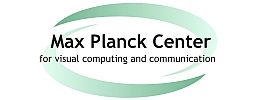| Foto | First Name | Last Name | Position |
|---|---|---|---|
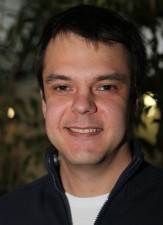 |
Mykhaylo | Andriluka | People Detection and Tracking |
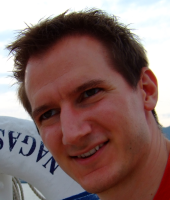 |
Roland | Angst | Vision, Geometry, and Computational Perception |
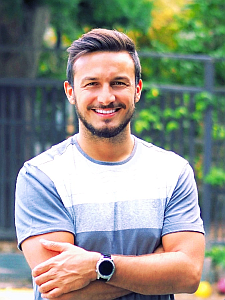 |
Tamay | Aykut | |
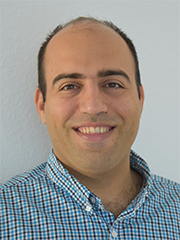 |
Vahid | Babaei | |
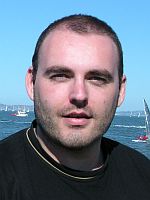 |
Pierpaolo | Baccichet | Distributed Media Systems |
 |
Volker | Blanz | Learning-Based Modeling of Objects |
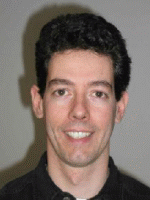 |
Volker | Blanz | Learning-Based Modeling of Objects |
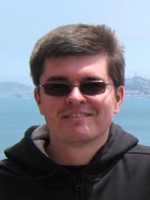 |
Martin | Bokeloh | Inverse Procedural Modeling |
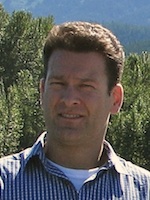 |
Adrian | Butscher | Geometry Processing and Discrete Differential Geometry |
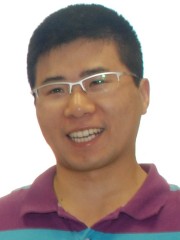 |
Renjie | Chen | Images and Geometry |
Researcher
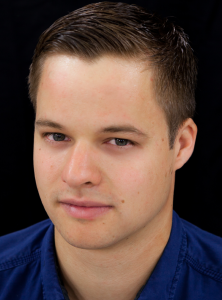 |
Dr. Michael Zollhöfer |
Visual Computing, Deep Learning and Optimization
| Name of Research Group: | Visual Computing, Deep Learning and Optimization |
| Homepage Research Group: | web.stanford.edu/~zollhoef |
| Personal Homepage: | zollhoefer.com |
| Mentor Saarbrücken: | Hans-Peter Seidel |
| Mentor Stanford: | Pat Hanrahan |
| Research Mission: | The primary focus of my research is to teach computers to reconstruct and analyze our world at frame rate based on visual input. The extracted knowledge is the foundation for a broad range of applications not only in visual effects, computer animation, autonomous driving and man-machine interaction, but is also essential in other related fields such as medicine and biomechanics. Especially, with the increasing popularity of virtual, augmented and mixed reality, there comes a rising demand for real-time low latency solutions to the underlying core problems. My research tackles these challenges based on novel mathematical models and algorithms that enable computers to first reconstruct and subsequently analyze our world. The main focus is on fast and robust algorithms that approach the underlying reconstruction and machine learning problems for static as well as dynamic scenes. To this end, I develop key technology to invert the image formation models of computer graphics based on data-parallel optimization and state-of-the-art deep learning techniques. The extraction of 3D and 4D information from visual data is highly challenging and under-constraint, since image formation convolves multiple physical dimensions into flat color measurements. 3D and 4D reconstruction at real-time rates poses additional challenges, since it involves the solution of unique challenges at the intersection of multiple important research fields, namely computer graphics, computer vision, machine learning, optimization, and high-performance computing. However, a solution to these problems provides strong cues for the extraction of higher-order semantic knowledge. It is incredibly important to solve the underlying core problems, since this will have high impact in multiple important research fields and provide key technological insights that have the potential to transform the visual computing industry. In summer 2019 Michael Zollhöfer joined Facebook. |
Researcher
- Name of Researcher
- Thorsten Thormählen
- Homepage of Research Group
- First Name
- Thorsten
- Last Name
- Thormählen
- Foto
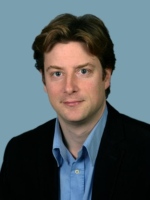
- Phone
- Position
- Image-based 3D Scene Analysis
- Mentor in Saarbruecken
- Hans-Peter Seidel
- Mentor in Stanford
- Categories
- Former Groups
- Research Mission
- The research group develops new tools and algorithms for 3D scene analysis from image sequences or video. This comprises estimations of camera motion of one or more cameras in a given scene; of static scene geometry and motion and shape of moving objects; and of scene illumination. Such tools and algorithms can be used for the generation of visual effects in movie and TV production. Specialized versions of these algorithms can also be applied in the field of 3D scene analysis for autonomous aerial, ground, and water vehicles as well as industrial, domestic, and medical robots. The aim is to develop tools for 3D scene analysis that work fully automatically. Nevertheless, in case of error, the user should be in control of the estimation process and must be able to guide the algorithm to the desired solution by simple and intuitive interactive techniques. Another approach to deal with errors is to automatically extract high level information from the data generated by the algorithms. By feeding back this information into the estimation process it is possible to guide the algorithms to the correct solution. The research results are published in international journals and conference proceedings. The group particularly focuses on tools and algorithms that have the potential to be turned into mass market applications and are therefore attractive for commercial partners. Since fall 2012 Thorsten Thormählen is professor for computer graphics at the University Marburg.
- mission_rtf
- Name of Research Group
- Image-based 3D Scene Analysis
Personal Info
- Photo

- Website, Blog or Social Media Link
